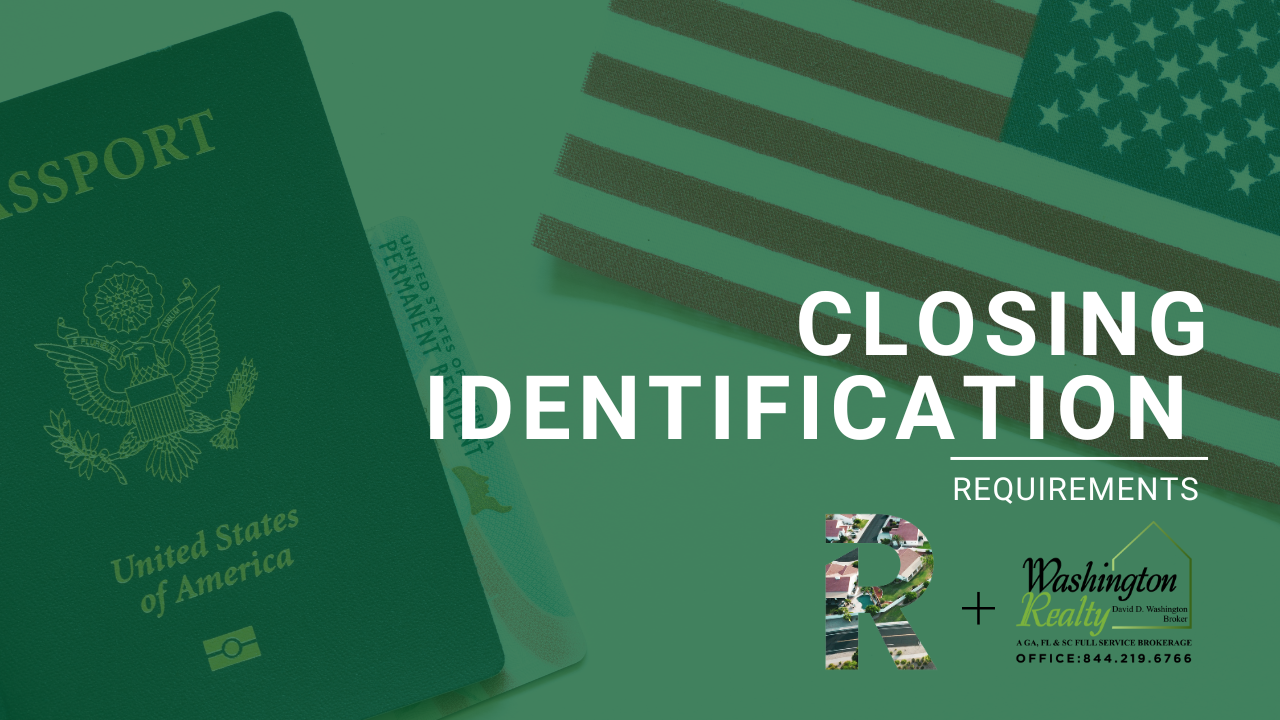Understanding Identification Requirements at Closing: What You Need to Know
Apr 01, 2025
Understanding Identification Requirements at Closing: What You Need to Know
When buying or selling a home, the closing process marks the final step in the real estate transaction. It's during this stage that legal documents are signed, funds are transferred, and ownership officially changes hands. A crucial but often overlooked part of this process is providing proper identification. Here's a breakdown of what identification is required at closing and why it's so important.
Why Identification is Necessary at Closing
To reduce the risk of forgery and fraud, individuals signing documents in a real estate or lending transaction are legally required to present valid forms of identification. While exact requirements can differ by state, the following is a general summary of the types of identification commonly used to verify and confirm a person’s identity.
Identification at closing serves multiple critical functions:
- Preventing Fraud: Real estate fraud is a serious concern. Requiring valid ID helps ensure all parties involved are who they claim to be.
- Legal Compliance: Title companies, lenders, and notaries are legally required to verify the identity of signatories to prevent identity theft and ensure the enforceability of signed documents.
- Notarization: Many documents signed at closing must be notarized, and notaries cannot proceed without properly verifying the signer's identity.
Types of Identification Typically Required
While specific requirements can vary by state, lender, and title company, the following forms of ID are commonly accepted:
- Government-Issued Photo ID (Primary)
This is the most important form of ID and is mandatory in almost all closings. Acceptable forms include:
- Driver’s license – issued by any state
- State-issued ID card – issued by any state
- U.S. or foreign passport – physical description not required
- Military ID
The ID must be:
- Current, valid (not expired)
- Clearly legible
- Contain a photo and signature
- Secondary ID (Sometimes Required)
In some cases, particularly if the primary ID raises questions or the transaction involves high risk, a secondary form of ID may be requested. Examples include:
- Social Security card
- Credit card (with matching name)
- Birth certificate
- Utility bill with your name and address
Forms of Identification That Are Not Accepted:
- Temporary driver’s licenses
- Driver’s licenses that do not include a photograph
- Social Security cards
- Employee ID badges
- Club or membership cards
- Permanent resident (green) cards
Special Considerations
Name Discrepancies
If the name on your ID doesn’t exactly match the name on the legal documents (e.g., due to marriage or divorce), you may need to provide additional documentation such as:
- Marriage certificate
- Divorce decree
- Court order confirming a legal name change
Power of Attorney (POA)
If someone is signing on your behalf using a power of attorney, they must present:
- A valid ID for themselves
- A notarized copy of the POA document
- Sometimes, prior approval from the title company or lender
Foreign Buyers/Sellers
Foreign nationals may need to provide a valid passport and potentially a U.S. visa or additional documentation, depending on the nature of the transaction and local regulations.
Tips to Prepare for Closing
- Check ID Validity: Make sure your identification is not expired and matches the name used on your real estate documents.
- Bring Two Forms: Even if only one is required, having a backup can prevent delays.
- Ask Ahead: If you’re unsure what will be accepted, contact your closing agent or title company in advance.
- Consider Remote Closings: If you're signing documents remotely, digital ID verification may be required. Confirm the technology and process with your closing agent.
Proper identification is a small but vital piece of the closing puzzle. Being prepared with the right documents ensures a smooth, secure, and legally compliant transaction. When in doubt, reach out to your closing attorney, real estate agent, or title company to clarify what you’ll need to bring to the closing table.
David D. Washington, CRS is the Managing Broker of Washington Realty.
